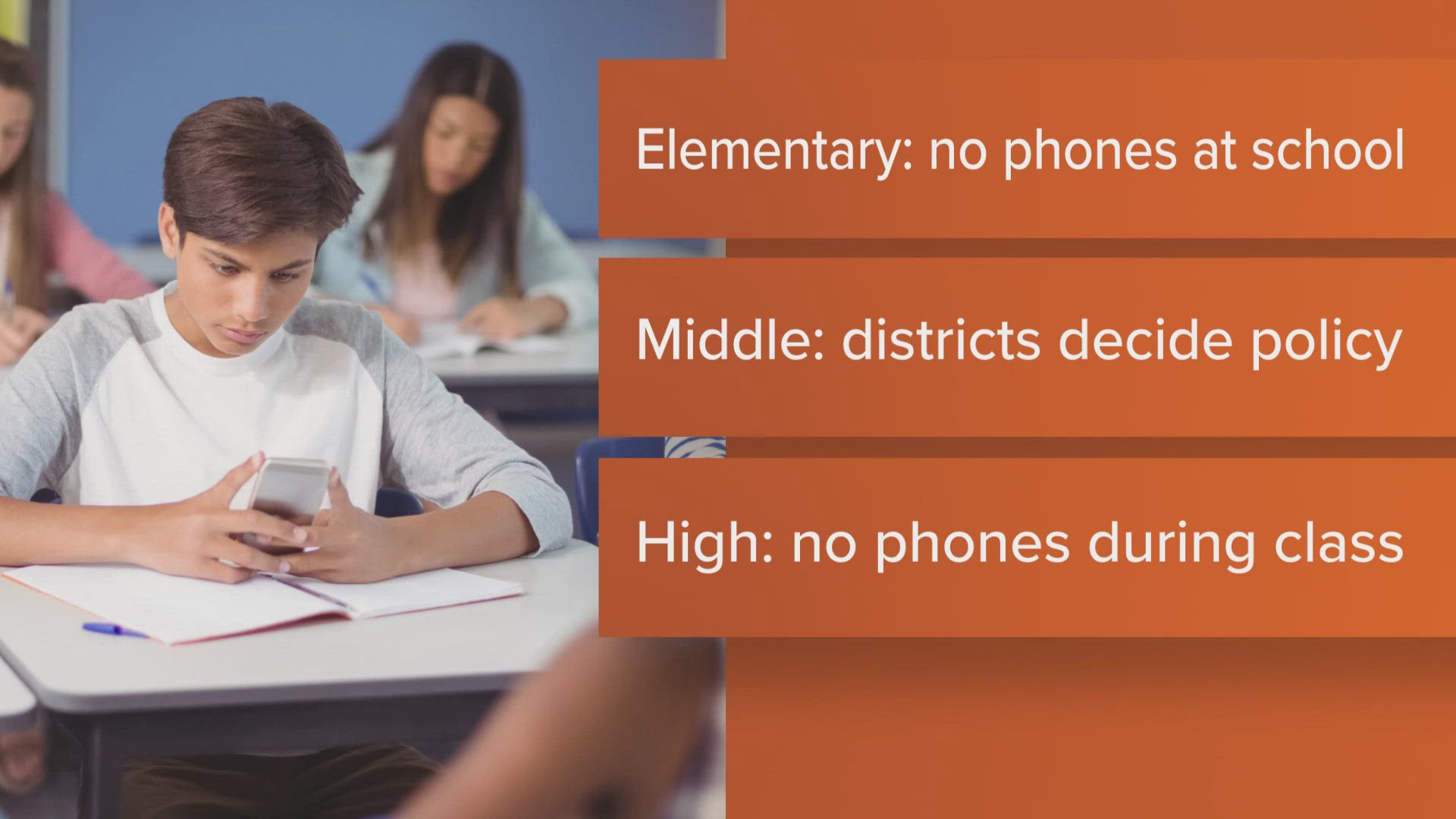VIRGINIA, USA — Virginia has finally come out with its guidance for cell phone-free education. Here’s what you need to know.
On July 9, Gov. Glenn Youngkin issued Executive Order 33 requiring cell phone-free education in all schools in the Commonwealth. In the executive order, the Virginia Department of Education is required to define what cell phone-free education means.
Now, the guidance is available. This is what cell-phone free schools means for each age group:
Elementary Schools (K-5):
No cell phones or personal electronic communication devices will be allowed to be used by students in school buildings or on school grounds.
Students whose parents decide to send them with a cell phone must turn it off and store it away from themself during the school day.
School divisions will make policies on cell phone usage on school buses where there are elementary students.
If a student needs to communicate non-emergencies to their parents, they must use school-based communication tools and platforms in the office, classroom or other centralized location.
During instructional time, both teachers and parents should use school-based communication tools and channels to communicate emergencies and non-emergencies during the school day. The guidance encourages schools to have a school official available to support students in the event a student needs to be notified of a family emergency.
Middle Schools (Grade 6-8):
No cell phones or personal electronic communication devices will be allowed to be used by students during class time.
Students who choose to bring a cell phone must turn it off and store it away from themself during the school day.
School divisions will make local policies on when it is appropriate to use cell phone and personal electronic communication devices outside of class time, before and after school, on school buses, within the school building and on school grounds.
If a student needs to communicate non-emergencies to their parents, they must use school-based communication tools and platforms in the office, classroom or other centralized location.
During instructional time, parents should use school-based communication tools and channels to communicate emergencies and non-emergencies during the school day. The guidance encourages schools to have a school official available to support students in the event a student needs to be notified of a family emergency.
Teachers, co-curricular and extra-curricular advisers must use non-social media based apps to communicate with students about activity and athletic scheduling information during school hours.
Schools should provide students with developmentally appropriate guidance and support on the appropriate use of school-issued technology devices, educational apps and educational tools for academic and for educational research purposes, for both classroom and homework assignments.
High Schools (Grade 9-12):
No cell phones or personal electronic communication devices will be allowed to be used by students during class time.
Students who choose to bring a cell phone must turn it off and store it away from themself during the class time.
Outside of class time, cell phones may be used in high schools before and after school.
If a student needs to communicate non-emergencies to their parents, they must use school-based communication tools and platforms in the office, classroom or other centralized location.
If a parent needs to communicate an emergency during class time, they should use school-based communication tools and channels.
Teachers, co-curricular and extra-curricular advisers must use non-social media based apps to communicate with students about activity and athletic scheduling information during school hours.
Schools should provide students with developmentally appropriate guidance and support on the appropriate use of school-issued technology devices, educational apps and educational tools for academic and for educational research purposes, for both classroom and homework assignments.
The only students who may be exempt from these programs are students who have approved accommodations through Individualized Education (IEP) or 504 (Section 504 of the Rehabilitation Act) plans.

